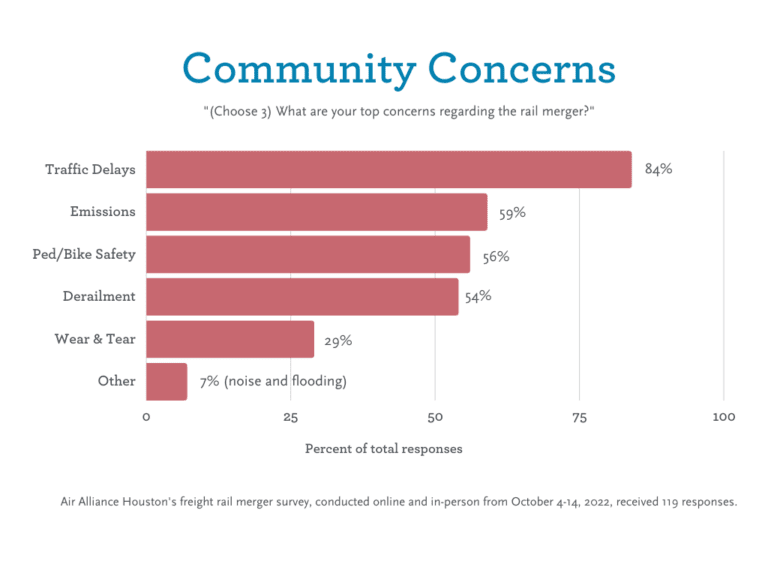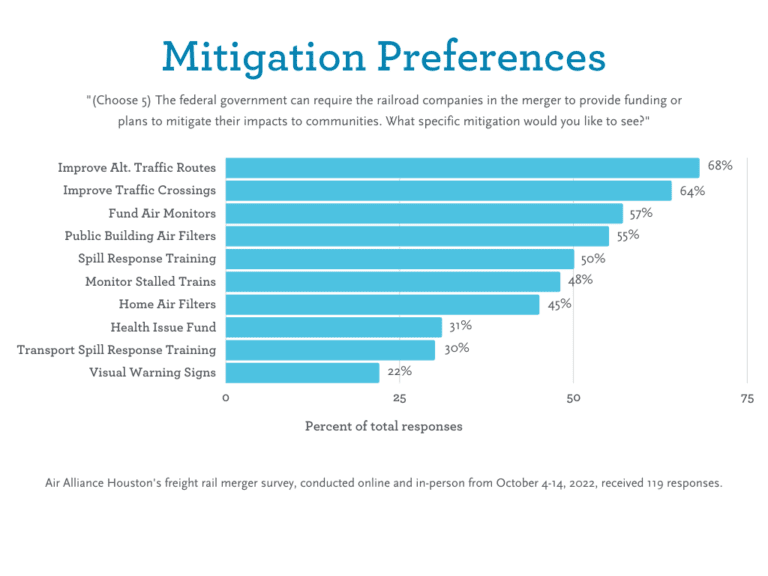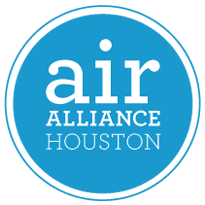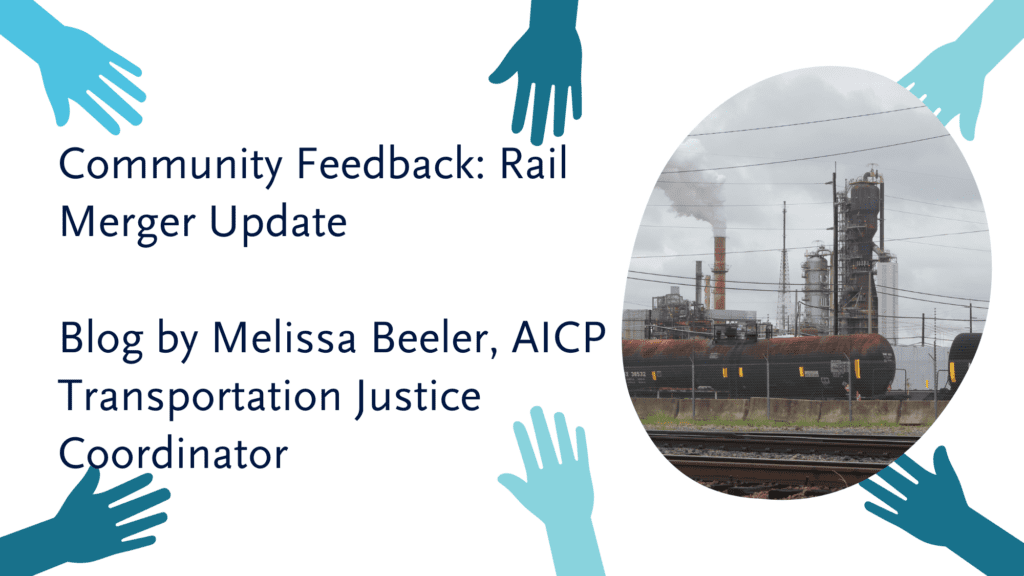“Eight more trains per day,” our Environmental Justice Coordinator and I would inform residents.
Then came the reactions. Some shook their heads. Some frowned in anger. Others perked up wanting to know what to do. Without fail, this stated impact of the proposed freight rail merger between Canadian Pacific and Kansas City Southern resonated with folks in our communities who are already experiencing the negative health, mobility, and safety issues freight rail has imposed for decades.
We set out to engage with residents directly impacted by freight rail to make sure they had a say in the merger as the federal government reviews its environmental and transportation impacts. We knocked on doors around the freight route through Near Northside and Fifth Ward and tabled in the East End, speaking with 60+ residents, passing out over 100 flyers and sharing a survey which received over 100 responses.
Overall, residents were completely opposed to the merger and generally disinterested in mitigation. Some did provide specific mitigation suggestions such as street safety improvements and demanding trains stop parking in the middle of intersections. The main concerns included noise, long detours, job loss and physical injuries due to parked trains, disruption of emergency services, and increased pollution. One woman said her daughter could not access METROLift because the trains would prevent the van from getting where it needed to go.
The graph below shows the most frequently cited concern from our survey: traffic delays including emergency service delays, increased emissions, pedestrian and bicyclist safety, and derailment. Noise was also a frequently cited concern during our many conversations with residents and on the survey’s write-in questions.


Many other ideas for mitigation were offered by residents. You can read them all here.
The survey results were shared with Harris County and attached to our comments to the Surface Transportation Board before the October 14th deadline. Based on community feedback, Air Alliance Houston expressed strong opposition to the merger and requested infrastructure, air quality, and quiet zone mitigation be required by the federal government.
Engagement burnout is real. That’s why we are exceptionally grateful to every individual who took the time to engage with us. Moving forward, we will continue to monitor the freight merger environmental impact statement process and engage with local and regional groups advocating for solutions to community concerns.
To our communities we serve: know that you have a partner in us. We will continue to support Houston communities’ collective efforts to pursue justice from railroad companies and push government agencies to hold them accountable.

